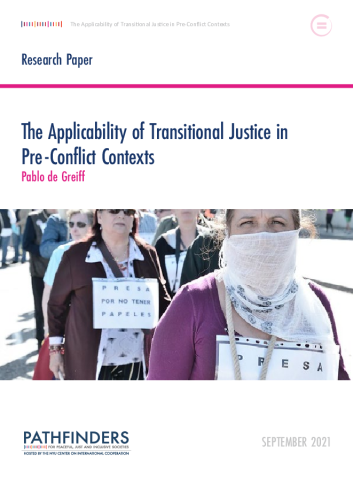The current moment can be characterized, politically, in terms of two macro-level phenomena, a lurch towards populism (of the left and the right) on the part of many leaders (and eventually, their followers), and simultaneously, unusually large popular mobilizations in favor of progressive causes.
These seemingly dilemmatic factors arguably share a common underlying cause, namely, great lack of trust in the familiar mechanisms of political representation—a lack of trust which itself has deeper roots in increasing inequality and dysfunctional forms of the politics of recognition.
The question that this paper will consider is whether some of the lessons learned during the last forty years of practice of transitional justice in post authoritarian and post conflict settings can be of use in pre- or non-conflict settings. The answer will be a qualified yes. Transitional justice, it has been argued, is a mechanism of social integration, and to that extent, it has some valuable lessons to teach. On the other hand, transitional justice is mainly an accountability tool. Thus, in the sort of pre-conflict setting that this paper is concerned with, before criminal accountability is called for, the question is not so much about the utility of each and every one of its tools, but of some of them, and especially, of the lessons learned in trying to repair a badly torn social fabric.

